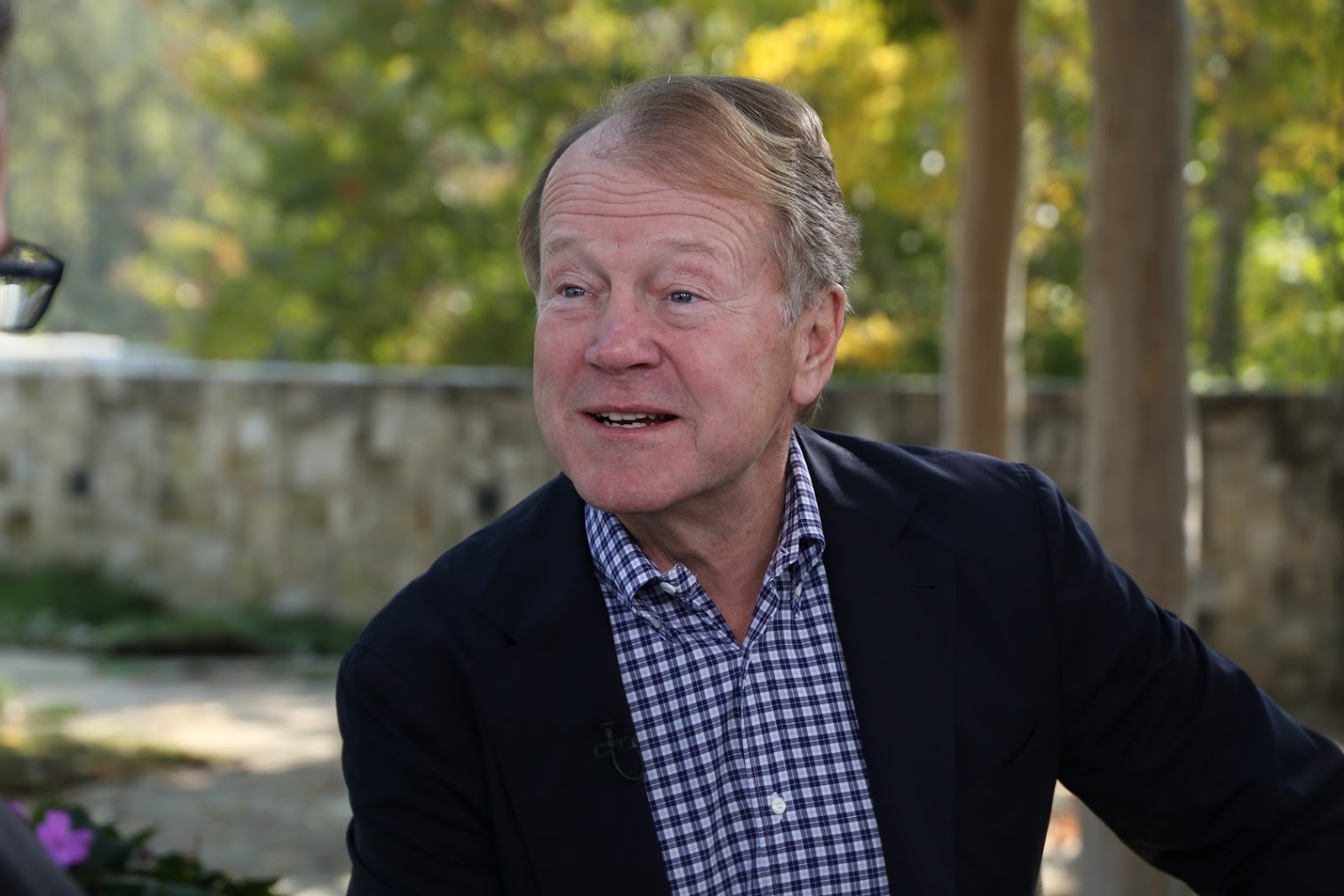 AI
AI
 AI
AI
 AI
AI
There is a story about the time John Chambers (pictured), former chief executive officer of Cisco Systems Inc., had a conversation with Jack Welch, the legendary top executive for General Electric.
At the time the two spoke in 2000, Cisco and Chambers were riding high.
“He said: ‘John, you have a very good company,’” Chambers recalled. “I asked him what it takes to be a great one. He said: ‘A near-death experience.’”
In Chambers’ retelling, his near-death experience came not long after that conversation with Welch, as a combination of a dot-com collapse and the 9/11 terrorist attacks resulted in the loss of approximately 25% of Cisco’s customers nearly overnight.
Twenty years later, Chambers has moved on to become founder and chief executive officer of JC2 Ventures, but the corporate world has been confronted with a near-death moment of its own. Failure to adapt and transition rapidly to digital models may well doom a number of major firms.
“I now think, unfortunately, you’re going to see 20% to 35% of startups not exist in two years, and I think it’s going to shock you with the number of Fortune 500 companies that do not make this transition,” Chambers said.
Chambers spoke with Jeff Frick, host of theCUBE, SiliconANGLE Media’s livestreaming studio. He was joined by Umesh Sachdev, co-founder and chief executive officer of Uniphore Software Systems Pvt. Ltd., and they discussed how the current pandemic is affecting major industries, a corporate playbook for survival and the role of government in moving decisively to address the crisis.
Chambers’ point around the challenge facing companies that may have been caught unprepared for the massive shift to remote work during the current coronavirus pandemic has been underscored by one of the firms in his own portfolio. Uniphore’s conversational artificial-intelligence technology is designed to transform the call-center space, an industry that has been significantly impacted during the current crisis.
“There are over 40 million people who work in contact centers around the world, and all of them right now are working remote,” Sachdev said. “This industry was never designed to work remote. Enterprises who didn’t plan for this, who thought automation or digitization was a project they could plan for next year or were sitting on the fence, will now no longer have a choice to make this adjustment.”
Sachdev has an investment partner who has seen his share of industry disruptions. From the time he became CEO at Cisco in 1995 to when he stepped down as chairman in 2017, Chambers managed through the Asian financial crisis in 1997, the dot-com collapse several years later, a severe global economic downturn in 2008, and other disease-related events, such as the Zika virus in Brazil and a bird flu in Mexico, which disrupted supply chains.
“I’ve seen this movie again and again,” Chambers said. “The playbook is just simple crisis management. Don’t hide, be visible, and CEOs should take the role in implementing that playbook.”
In today’s world of lockdowns and “sheltering in place,” being visible means embracing the tools of video collaboration. As video conferencing usage has skyrocketed globally, Chambers envisioned a fundamental shift in work patterns for many enterprises.
“Today alone, I’ve done seven major group meetings on Zoom and Google Hangouts and Cisco Webex,” Chambers said. “Video sessions will become such an integral part of our daily lives that we will not go back to having to do 90% of our work physically.”
During his career at Cisco, Chambers was one of the more active Silicon Valley leaders in working with government officials. He co-founded the lobbying organization TechNet with venture capitalist John Doerr in 1997 and served on policy-making groups for two U.S. presidents.
While he has battled with government agencies in the past, including a highly publicized confrontation with the National Security Agency over use of Cisco’s products for surveillance purposes, Chambers indicated he was positive about the federal role during the current crisis.
“For the first time in my lifetime, I have seen the federal government and federal agencies move very rapidly,” Chambers said. “The Federal Reserve Board was ahead of both the initial interest rate cuts and was ahead in terms of the slowdown. Right behind was the Treasury Department, which put $4 billion on top of that.”
Chambers is on record as saying that he believes this current crisis will last at least through December. While that may seem like a pessimistic view to some, Chambers is a realist and speaks from decades of experience running a major tech company and his personal upbringing as well.
“Deal with the world the way it is as my parents, who were doctors, taught me to do, not with the way we wish it was,” Chambers said. “Get your facts, prepare for the changes, and get ready for the future. The key will be how many companies do this.”
Here’s the complete video interview, one of many CUBE Conversations from SiliconANGLE and theCUBE:
Support our mission to keep content open and free by engaging with theCUBE community. Join theCUBE’s Alumni Trust Network, where technology leaders connect, share intelligence and create opportunities.
Founded by tech visionaries John Furrier and Dave Vellante, SiliconANGLE Media has built a dynamic ecosystem of industry-leading digital media brands that reach 15+ million elite tech professionals. Our new proprietary theCUBE AI Video Cloud is breaking ground in audience interaction, leveraging theCUBEai.com neural network to help technology companies make data-driven decisions and stay at the forefront of industry conversations.